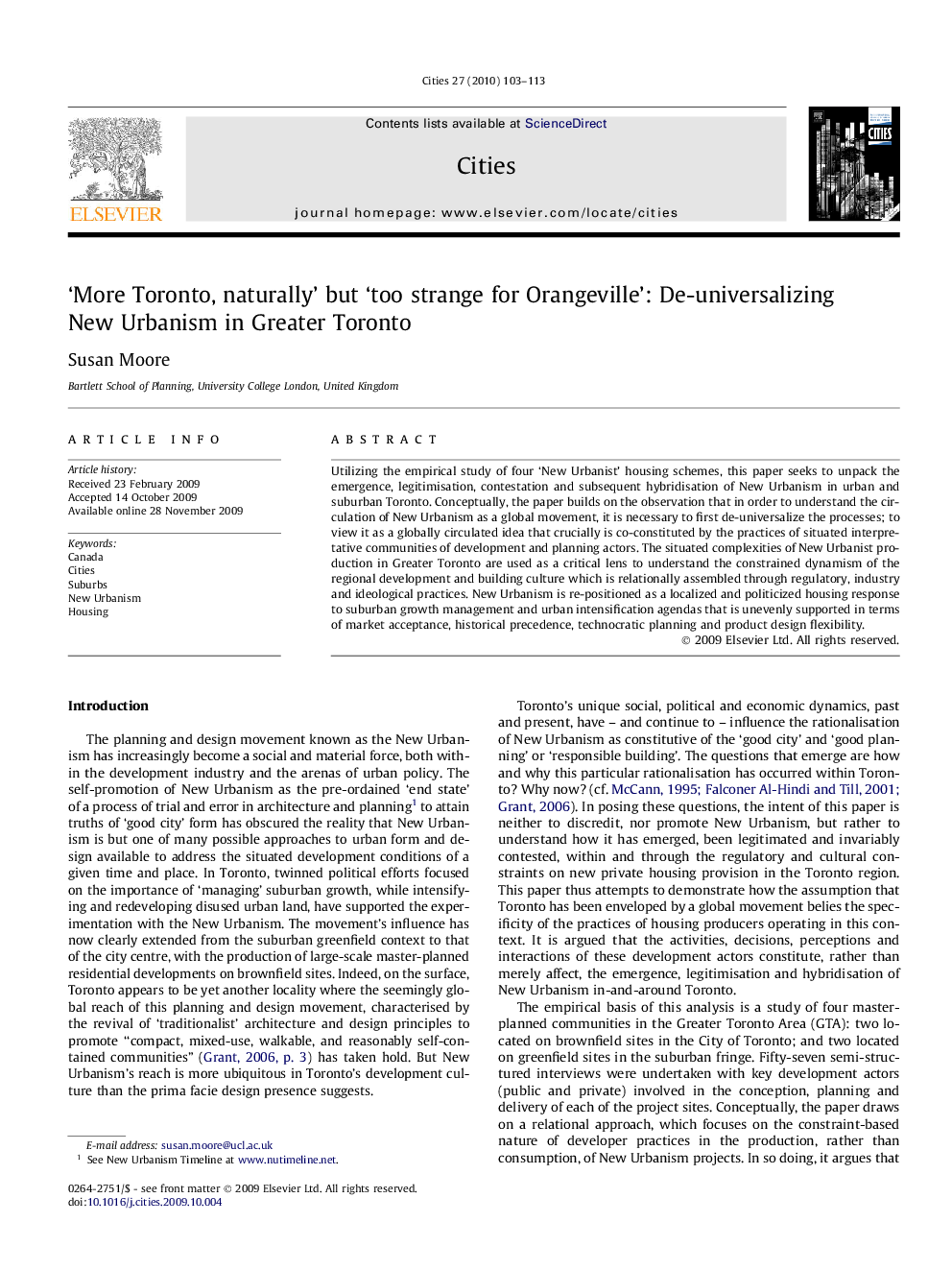| Article ID | Journal | Published Year | Pages | File Type |
|---|---|---|---|---|
| 1008782 | Cities | 2010 | 11 Pages |
Abstract
Utilizing the empirical study of four 'New Urbanist' housing schemes, this paper seeks to unpack the emergence, legitimisation, contestation and subsequent hybridisation of New Urbanism in urban and suburban Toronto. Conceptually, the paper builds on the observation that in order to understand the circulation of New Urbanism as a global movement, it is necessary to first de-universalize the processes; to view it as a globally circulated idea that crucially is co-constituted by the practices of situated interpretative communities of development and planning actors. The situated complexities of New Urbanist production in Greater Toronto are used as a critical lens to understand the constrained dynamism of the regional development and building culture which is relationally assembled through regulatory, industry and ideological practices. New Urbanism is re-positioned as a localized and politicized housing response to suburban growth management and urban intensification agendas that is unevenly supported in terms of market acceptance, historical precedence, technocratic planning and product design flexibility.
Related Topics
Social Sciences and Humanities
Business, Management and Accounting
Tourism, Leisure and Hospitality Management
Authors
Susan Moore,
